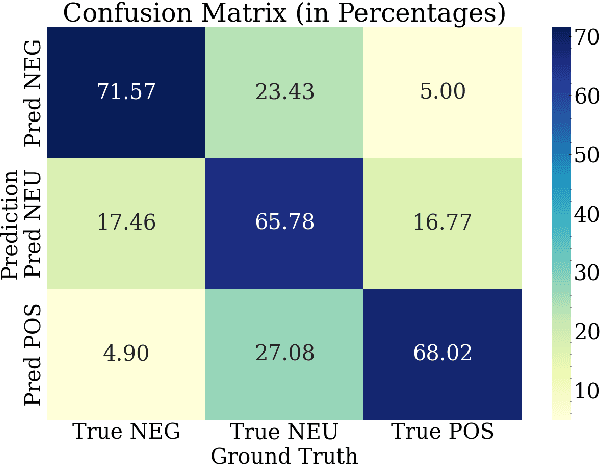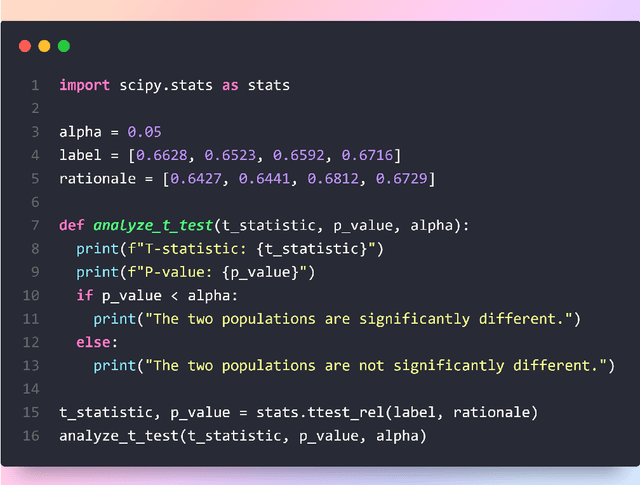Jerry Ngo
Sentiment Reasoning for Healthcare
Jul 24, 2024



Abstract:Transparency in AI decision-making is crucial in healthcare due to the severe consequences of errors, and this is important for building trust among AI and users in sentiment analysis task. Incorporating reasoning capabilities helps Large Language Models (LLMs) understand human emotions within broader contexts, handle nuanced and ambiguous language, and infer underlying sentiments that may not be explicitly stated. In this work, we introduce a new task - Sentiment Reasoning - for both speech and text modalities, along with our proposed multimodal multitask framework and dataset. Our study showed that rationale-augmented training enhances model performance in sentiment classification across both human transcript and ASR settings. Also, we found that the generated rationales typically exhibit different vocabularies compared to human-generated rationales, but maintain similar semantics. All code, data (English-translated and Vietnamese) and models are published online: https://github.com/leduckhai/MultiMed
What Do Language Models Hear? Probing for Auditory Representations in Language Models
Feb 26, 2024Abstract:This work explores whether language models encode meaningfully grounded representations of sounds of objects. We learn a linear probe that retrieves the correct text representation of an object given a snippet of audio related to that object, where the sound representation is given by a pretrained audio model. This probe is trained via a contrastive loss that pushes the language representations and sound representations of an object to be close to one another. After training, the probe is tested on its ability to generalize to objects that were not seen during training. Across different language models and audio models, we find that the probe generalization is above chance in many cases, indicating that despite being trained only on raw text, language models encode grounded knowledge of sounds for some objects.
 Add to Chrome
Add to Chrome Add to Firefox
Add to Firefox Add to Edge
Add to Edge